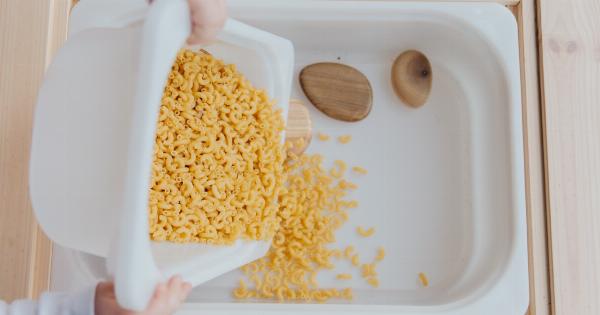Expectant fathers are often excited about the arrival of their little one. However, with this excitement comes a great sense of responsibility to ensure that they raise happy, healthy, and well-adjusted kids.
It’s important for fathers to make conscious life choices and form positive habits that can help their kids thrive. However, not all habits can be helpful. Some habits could actually do more harm than good. In this article, we explore thirty habits expectant fathers should avoid to prevent harm to their kids.
1. Smoking
Smoking is one of the top habits that can harm your child’s health. Exposure to secondhand smoke can increase the risk of sudden infant death syndrome, respiratory problems, and asthma.
Additionally, smoking during pregnancy can lead to low birth weight, premature birth, and stillbirth.
2. Drinking Alcohol
Alcoholic beverages contain substances that can harm an unborn baby. Drinking alcohol while pregnant can cause fetal alcohol spectrum disorders, which can lead to learning disabilities, behavior problems, and mental issues.
It’s important to avoid drinking alcohol during and after pregnancy to provide your child with a healthy life.
3. Drug Abuse
Drug abuse can cause a range of problems for expectant fathers and their kids. It can result in miscarriage, premature birth, birth defects, and withdrawal symptoms.
Additionally, kids born to parents who use drugs are more likely to have developmental and behavioral problems, and lower academic achievement.
4. Poor Work-Life Balance
When fathers work long hours or put their career first, they miss out on valuable time with their kids. This can lead to feelings of neglect and abandonment in children.
It’s important for fathers to strike a healthy work-life balance that allows them to be present and available for their children.
5. Lack of Physical Activity
Fathers who lead a sedentary lifestyle model passive behavior for their kids. Children may grow up with a lack of initiative to engage in physical activity, leading to an increased risk of obesity and related health problems.
Active fathers can model healthy behaviors and promote physical activity in kids.
6. Poor Eating Habits
Dietary habits of fathers have an impact on children’s health and eating habits. Overeating, consuming unhealthy foods, or skipping meals can negatively influence the child’s physical and mental health.
Developing healthy eating habits and sticking to nutritious diets can impact a child’s long-term health and well-being.
7. Over Controlling Parenting Style
Parents who control every aspect of their child’s life can prevent the child from developing a sense of autonomy and confidence. Over-controlling parenting styles can lead to anxiety and a lack of self-esteem in children.
Fathers should aim to balance their guidance and influence with support and freedom for their kids.
8. Inconsistent Discipline
When fathers don’t consistently enforce consequences for bad behavior, children may become confused and feel unsafe. Inconsistent discipline can create feelings of resentment and lead to behavioral problems.
Consistent and mindful discipline can facilitate the development of self-control and responsibility in children.
9. Lack of Sleep
Fathers who consistently lack sleep due to long work hours, poor sleep hygiene, or other reasons, feel irritable and stressed, which can affect their relationships with their children.
Inadequate sleep leads to increased stress hormones like cortisol, and impacts cognitive function and mood. Getting adequate sleep is essential for the well-being of both the father and the child.
10. Ignoring Mental Health
Ignoring or dismissing mental health concerns like depression or anxiety worsens personal well-being and can negatively impact family life.
Fathers should proactively seek help for mental health concerns and set an example of taking care of one’s health and happiness.
11. Being Judgmental
Being hyper-critical and judgmental with children can cause resentment and a lack of trust. Fathers should promote open communication and be accepting and supportive of their children’s choices and actions.
12. Abusive or Angry Behavior
Fathers who display abusive or angry behavior risk harming their children, both physically and emotionally. Physical, verbal or emotional abuse can leave lasting and negative impacts on children that can impact their future relationships and self-worth.
Fathers should work to manage their anger and learn effective communication strategies.
13. Suppressing Emotions
Fathers who suppress their emotions risk modeling unhelpful behavior to their children. Teaching children to suppress emotions can lead to difficulties in regulating emotions and managing stress.
Expressing positive emotions and managing negative emotions can be a beneficial model for fathers to demonstrate to their children.
14. Poor Communication Skills
Effective communication is essential in personal and professional relationships. Fathers who struggle to communicate effectively can unintentionally communicate negative messages to their children and hamper their relationships with them.
Building positive communication skills can foster a healthy relationship between fathers and their children.
15. Unrealistic Expectations
Expecting too much or pushing children too hard can cause stress and anxiety. Unrealistic expectations can lead to feelings of frustration for both the father and the child, and can negatively impact self-esteem and motivation.
Fathers should have realistic expectations and celebrate incremental progress.
16. Using Technology as a Babysitter
Parents who use technology as a way to manage childcare instead of engaging with their kids, risk creating a lack of connection and increased screen time for the child. Children need interaction and socialization for healthy development.
Fathers should try to provide hands-on care to bonding with the child and promoting healthy development.
17. Disrespecting Spouse’s Parenting Techniques
A lack of cohesion and conflict in parenting styles can cause children to feel confused and unsure about their family dynamics.
Disrespecting a spouse’s parenting techniques, without discussion or attempts at compromise, can create tensions between parent, child and spouse. Fathers should emphasize and model mutual respect and collaboration with their partner.
18. Over-scheduling Kids
Over-scheduling children with extracurricular activities can leave insufficient time for relaxation, family bonding, or unstructured play. This can cause stress and lead to burnout in children.
Fathers should ensure adequate free time for their kids to foster creativity, relaxation and bonding family time.
19. Being a Helicopter Parent
Helicopter parents who hover too closely over their children can cause feelings of frustration and resentment in the child. Helicopter parenting reduces the child’s ability to develop autonomy and self-confidence.
Fathers should be supportive while allowing their children to experience natural consequences and make their own decisions.
20. Ignoring Boundaries and Limits
Fathers who fail to recognize children’s boundaries, limits, and space can unwittingly teach them to engage in similar behavior. It’s important to respect the child’s ownership of personal space and possessions.
Fathers should also create boundaries for themselves and model them for their children.
21. Forgetting to Say ‘I Love You’
Expressions of love are vital to building and maintaining healthy relationships. Fathers who fail to express love regularly miss an opportunity to bond and communicate with their child.
Fathers should prioritize saying “I love you,” as often as possible.
22. Ignoring Self-Care
The ability to manage parental stress is essential to promoting resilience in children, and fathers should be mindful of the importance of self-care. Ignoring self-care causes burnout, and the ability to care for others is compromised.
Fathers must ensure they have time for hobbies, relaxation, and to recharge their batteries to parent effectively.
23. Not Giving Kids Enough Space
Children require personal time and space for activities like play, relaxing, or constructive thinking. Fathers who intrude on children’s personal time risk repressing their children’s individuality and creativity.
Fathers should be mindful of their child’s need for space and encourage independent thinking.
24. Not Interacting With Children
A focus on phone, work, or other distractions can result in not having enough meaningful interactions with the child, leading to a lack of connection. Fathers who do not interact with their children may miss out on important milestones and memories.
Interacting with children can lead to positive child development and bonding.
25. Poor Time Management
Effective time management skills allow fathers to create a schedule that balances career, family, and self-care. Poor time management, on the other hand, can leave fathers feeling overwhelmed, leading to neglect or inconsistent parenting.
Fathers should review their time commitments and allocate appropriate times for family and self-care activities.
26. Perfectionism
Fathers who expect perfection from themselves or their children set impossible standards, leading to feelings of anxiety and inadequacy. Model, by example, that failure is a learning experience.
Fathers should focus on learning from mistakes and work towards progress instead of demanding perfection.
27. Neglecting Family Time
Family time is essential for nurturing relationships, fostering bonds and exchanging experiences. Fathers who neglect family time can reduce their children’s sense of belonging and can damage the relationship with their children.
Fathers should prioritize spending quality time with their family and make it a habit.
28. Ignoring Developmental Milestones
Being aware of the child’s developmental milestones is essential in ensuring that the child is meeting the mark in cognitive, behavioral and physical milestones.
Ignoring or dismissing developmental milestones could lead to missed opportunities for early intervention if necessary. Fathers should be dialoguing with their healthcare provider actively concerning their child’s milestones.
29. Not Apologizing for Mistakes
Apologizing for mistakes teaches children the positive effects of taking responsibility for their actions. Fathers who don’t apologize for mistakes plant the seed considered that apologize is unnecessary.
Fathers should lead by example by apologizing when necessary, whether it is for their own mistakes or failure to address shortcomings.
30. Not Being a Good Role Model
All the things mentioned above can play a role in developing an unhealthy family dynamic.
By consistently being a good role model, fathers can effectively teach their children values, attitudes and behaviors that promote healthy relationships, positive self-esteem and personal happiness. Fathers should aim to model being kind, responsible, and respectful at every given opportunity.































